Stoneware dishes are made from clay and kiln-fired at a high temperature, which enhances baking results by allowing for even heat distribution. Stoneware also retains heat for a longer period of time, keeping food warm so it can be served at your convenience. While most people are familiar with stoneware being used for baking pizza or in slow cookers, it can be used for anything you'd bake in an oven or microwave, and it comes in a variety of sizes and styles to suit your needs and tastes.
Season your stoneware by spraying or rubbing vegetable oil on it or baking high-fat foods on it or in it. This will create a non-stick surface. The seasoned stoneware will darken due to the fat and oil imbedded in it; this is normal.
Wash your seasoned stoneware by simply running hot water over it after it's cooled to room temperature. Scrape off stubborn food with a nylon scraper or brush the surface with a clean nylon kitchen brush. Don't use dish soap, as stoneware will absorb it, passing the flavor on to the next thing you cook. Soap will also break down the seasoning process.
Deep clean your stoneware safely by preparing a paste of 1/2 cup baking soda and 3 tablespoons water. Rub it on the stoneware and let it remain there for 15-20 minutes. Scrub the stone with a nylon scraper or kitchen brush. Rinse thoroughly and dry.
Place your stoneware in the refrigerator, freezer, microwave or oven as required. Good stoneware is meant to be versatile. Be sure, however, when transferring stoneware from a hot to a cold environment that you allow it to adjust to the temperature change. Otherwise, your stoneware may crack or break.
Understand the limitations of your stoneware. It can't be used under a broiler or on the stovetop. Furthermore, the natural makeup of stoneware affects cooking times. It takes longer to heat up, and after you remove the stoneware from the oven, it will continue to cook your food because it takes longer to cool down as well. As such, you should adjust cooking times accordingly.
Related Articles

How to Cook in Ceramic Bakeware
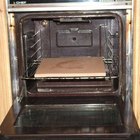
How to Make a Baking Stone
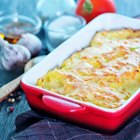
What Are the Benefits of Stoneware ...
Can You Oven Cook With Pottery?
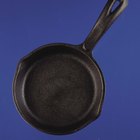
Does Peroxide & Baking Soda Harm Cast ...
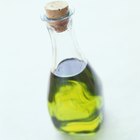
How to Season Granite Grill Cooking ...

How to Clean an Oven Liner

How to Clean a Pizza Stone

The Best Way to Prepare Bison Sirloin
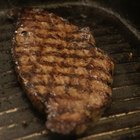
Instructions for an Emeril Cast-Iron ...
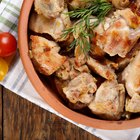
How to Cure a Clay Pot for Cooking

Can You Grease a Pan With Canola Oil?
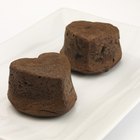
What Is a Souffle Dish?
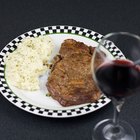
How to Make Pan-Seared Baked Steak

Anodized Vs. Teflon in Cookware

How to Clean Burnt Spills on Silicone ...
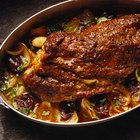
How to Use a Roaster for Pork

How to Cook Chicken for Sandwiches

Clay Roasters for Cooking

Cooking With Stoneware
Writer Bio
Shannon Johnson has been a freelance writer since 2008, specializing in health and organic and green-living topics. She practiced law for five years before moving on to work in higher education. She writes about what she lives on a daily basis.